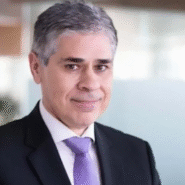Daniel Ek, born on February 21, 1983 (42 years old) in Rågsved, Sweden, is an entrepreneur and designer who currently serves as the CEO of Spotify, a digital music platform. With a strong personality from a young age, the Swedish entrepreneur’s career did not follow a conventional path in the business world; instead, he stood out by forging his own way.
From luxury to deep introspection, Daniel’s teenage years and formative period were marked by superficial thoughts and relationships. The creation of Spotify, along with his partner, was based on the idea of offering users unlimited music streaming for subscribers, and a limited, ad-supported version for those who preferred not to pay.
Why did Daniel Ek drop out of university?
CEOs and executive directors usually hold degrees in business-related fields such as Business Administration, Finance, or Engineering. Daniel’s case is different. From a very young age, he adopted a clear stance: to become an entrepreneur. How did he do it? By designing websites starting at the age of 15.
While still in school, the young Swede began designing and programming websites from home, which he sold for around $100 to $200 each. By the end of high school, Ek was already earning over $4,000 a month — an impressive sum for a teenager.
His university venture lasted less than three months. Determined to build something of his own and leave a mark, he dropped out of an engineering degree at a Swedish university and founded a company, which he sold months later for a substantial amount. The profits allowed him to indulge in luxury — buying a Ferrari and living in an upscale apartment for several months.
However, Ek’s early experience with wealth didn’t bring happiness. His relationships deteriorated, and business opportunities faded away. As a result, he sold his possessions and moved far away from the city. During a period of introspection and self-analysis, the prodigy — despite his natural talent — regained focus and returned to the business world.
How did Spotify come about?
In that deep reflection, Ek thought about the music industry and the rampant illegal downloading of songs. In a flash, together with his partner, he decided to launch «Spotify» — an app offering legal, unlimited music streaming. The company was founded in 2006 and officially entered the market in 2008.
Daniel has stated that one of the most challenging aspects was negotiating with record labels. Why? He and his co-founder had to convince music producers to allow their catalogs to be featured on the platform. The first expansion occurred in Europe, and three years later, Spotify launched in the United States, where its popularity skyrocketed. Much of Spotify’s positive reception in the U.S. was due to investors who believed in the Swedish entrepreneur’s vision.
For many years, Spotify’s profits were stalled due to license payments, copyright fees, and various royalties. Advertising, announcements, and low-cost subscriptions became the app’s business model, which revived Ek’s entrepreneurial career and made him a billionaire. In 2017, Billboard — a magazine specializing in the music industry — named him the “most important person in music.”
Interest in football
Thanks to his fame in the music industry and a fortune worth billions of dollars, Daniel Ek became interested in another field: sports. Specifically, football. Ek was rumored to be interested in investing in Arsenal, a top-tier football club that competes in the English Premier League.
It is estimated that the founder and CEO of Spotify has a net worth of around $10 billion, while his business partner, Daniel Lorentzon, is worth approximately $13 billion.
These staggering figures align with the bold risk they took back in 2006 — a journey full of obstacles and setbacks, especially from record labels and producers. Ek reportedly invested all his personal money into the launch of Spotify, a clear sign that he had placed all his hopes in the project.
In hindsight, Ek can confidently say that the bet paid off. A model that offers free, unlimited music to subscribers, and limited music with ads to free users, managed not only to succeed commercially but also to curb piracy and help transform the music industry into a legal and secure space.








